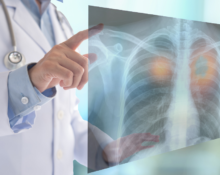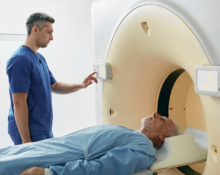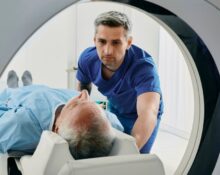365 Big Story: Lung Cancer Screening
Early Detection for Stronger Lung Health
Lung cancer screening is a preventive health measure that uses advanced imaging technology, usually a Low-Dose Computed Tomography (LDCT) scan, to detect early signs of lung cancer. Early detection plays a critical role, as lung cancer often does not present noticeable symptoms until it has reached a more advanced stage. Screening enables timely treatment, which may improve outcomes and survival rates.
Lung Cancer Singapore: Early Detection and Screening Options
- September 12, 2025
- 874 Views
- Reading Time: 3 minutes
Low Dose CT Lung Cancer Screening: What You Need To Know
- September 12, 2025
- 866 Views
- Reading Time: 2 minutes
CT Scan Lungs Price: Costs and Screening Options Explained
- September 15, 2025
- 969 Views
- Reading Time: 3 minutes
Why You Should Consider Lung Cancer Screening
Lung cancer is one of the leading causes of cancer-related deaths in Singapore and worldwide. Individuals who smoke, used to smoke, or have long-term exposure to second-hand smoke, air pollution, or occupational hazards such as asbestos may face a higher risk.
Undergoing lung cancer screening can:
- Detect lung abnormalities before symptoms appear.
- Increase the chance of effective treatment through early diagnosis.
- Provide reassurance for individuals at higher risk.
If you are aged 40 and above, have a history of heavy smoking, or other risk factors, you may benefit from speaking to a doctor about lung cancer screening.
Book an appointment for Lung Cancer Screening or to consult a Specialist. Contact us via the button below.
Find A Doctor


[Big Story] Sleep Apnea

[SG] Featured Doctor
Featured Financial Advisors


[Big Story] Sleep Apnea

[SG] Featured Doctor
FAQs
Lung cancer screening is recommended for adults with a history of heavy smoking, individuals aged 40 years and above with additional risk factors, or those with prolonged exposure to pollutants or occupational hazards.
A Low-Dose CT scan uses a smaller amount of radiation compared to a standard CT scan. It produces detailed images of the lungs, allowing doctors to detect small nodules or abnormalities at an early stage.
Screening does not prevent lung cancer, but it helps to detect it early, which increases the likelihood of effective treatment and better outcomes.
The frequency of screening depends on your risk profile. Many guidelines recommend annual LDCT scans for high-risk individuals, but your doctor will provide advice tailored to your situation.























